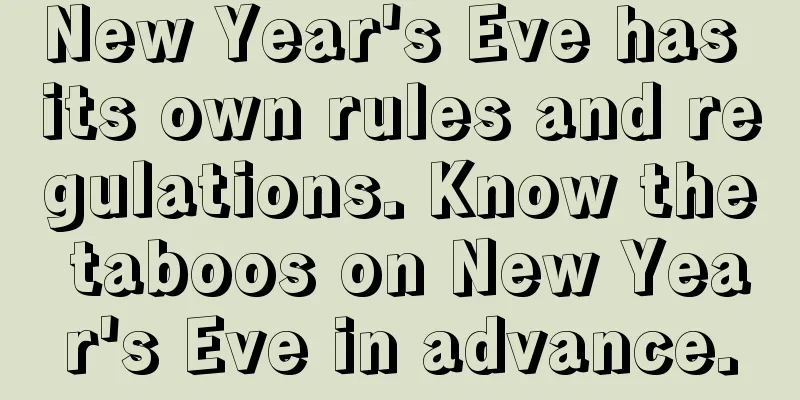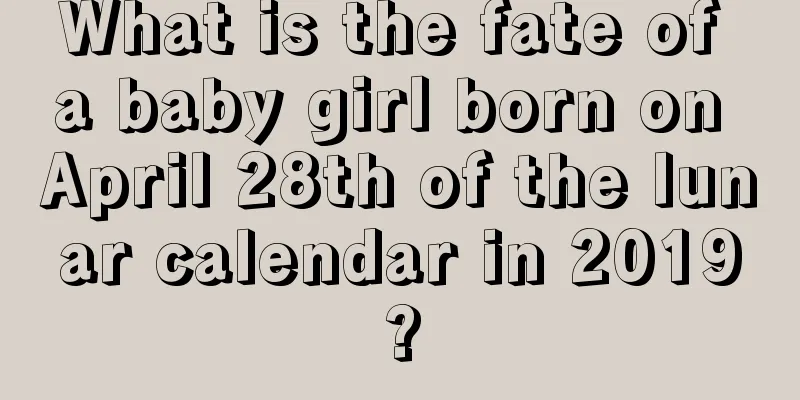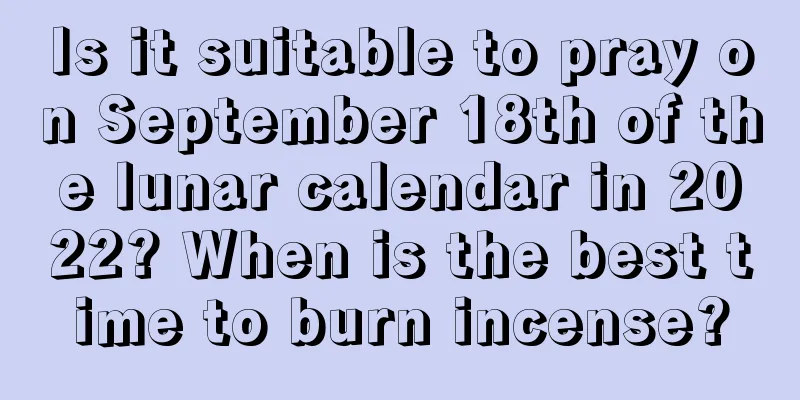New Year's Eve has its own rules and regulations. Know the taboos on New Year's Eve in advance.

Introduction: New Year's Eve is a traditional festival for the Han Chinese and some ethnic minorities. It is the last day of the lunar year. In addition to traditional customs and activities, traditional festival culture also has some traditional taboos that need to be known. What are the traditional taboos on New Year’s Eve? What should we pay attention to on New Year’s Eve? Please follow the editor to learn more about it below! New year, new atmosphere, there are countless topics about the Spring Festival. If you want to know more about the Lunar New Year, please continue to pay attention to Mr. Shui Mo’s exclusive Spring Festival special articles for you!Traditional taboos on New Year's EveStay up all night on New Year's Eve. Avoid going to bed too early. Speak auspicious words and avoid bad words. Avoid breaking objects. Breaking bowls, plates, cups and dishes on this day means that you will have "bad luck" in that year. The remedy is to wrap them in red paper, recite auspicious words such as "peace every year" and place them on the altar for a few days to avert the disaster. Don’t leave wet clothes for the New Year! It is taboo to encounter funerals, as it is considered unlucky and symbolizes that a major disaster will occur in the coming year.New Year's Eve taboosTaboo 1"It is taboo to see anyone on New Year's Eve." On the night of the 30th, most families have a "big reunion". Relatives who are far away will travel thousands of miles, braving the wind and snow to rush back home and come back to eat reunion dumplings with their families on the night of the 30th. This dinner is called "New Year's Eve dinner" in the south. Northerners eat noodles, while people in the north eat dumplings. There is a folk song saying: "On the 30th, the whole family happily eats flatbread." On the night of the 30th, the family is reunited, there is wind and snow outside, and the house is brightly lit and steaming. The glass windows were wiped clean, and water droplets were still rolling down from the glass. Bursts of firecrackers could be heard from time to time. Every family enjoys the joy of family life and is in great harmony. In order to ensure a happy family dinner, people generally do not want outsiders to suddenly intrude. Whether outsiders come to talk, visit or even collect debts, it will interfere with the happy reunion of the family. Therefore, on New Year's Eve, everyone except the "family Tartars" is refused. Taboo 2 "A married girl should not look at the lanterns at her parents' home on New Year's Eve." "On the night of the 30th, a married daughter cannot look at the lights of her parents' home. Doing so will cause the death of her family members." This rule is quite serious, but it has "legitimate reasons". Because the old society was dominated by men, married daughters often had conflicts with their mother-in-law. If a married woman (especially one from a wealthy and powerful family) always went back to her parents' home, her mother-in-law's family could no longer remain happy. In order to ensure the reunion of the mother-in-law's family, this folk custom was passed down. The purpose was good, but the form was "groundless". Although there are no legal provisions and it is not well-known, it plays a role in bringing cohesion and harmony. Taboo Three "Don't shave your head in the first month of the lunar year." In old Tianjin, barbers start working as early as the 30th, whether shaving heads and braiding hair, or washing and cutting men's hair, and they work all night until the morning of the 1st. At that time, most barbers were from Baodi. They would pack up and go back to their hometowns at dawn. It was difficult to find a barber to get a haircut again. This is to urge people to do all the cleaning and sanitation work before the New Year. Taboo 4 "Don't break anything." It is not allowed to break things during the New Year. If something is broken, just say: "Sui (Sui) Sui (Sui) Ping An." This is to remind people not to get carried away during the New Year, and to be careful for good luck. It is a psychological hint and has no other meaning. Summary: The above article introduces in detail the traditional taboos on New Year’s Eve and New Year’s Eve. You can refer to it. I hope you can try to avoid the above situations. I wish you all a happy new year! After reading this article, there are more exciting content in the Spring Festival special topic, let’s take a look! |
>>: A blind date guide before the 2017 Spring Festival, a must-have for single women!
Recommend
Is September 13th of the lunar calendar in 2017 a suitable day to open a business?
The harvest season in golden September will bring...
What is the direction of the God of Happiness on November 25, 2021 in the lunar calendar? In which direction?
“In eleventh month, Yin is born, and it is time to...
What is the exact time of the Beginning of Summer in 2019? Why should we eat eggs on the Beginning of Summer?
Introduction: The Beginning of Summer is one of th...
Is the 15th day of the third lunar month in 2018 suitable for opening a new store?
In the third month of the lunar calendar, the wea...
Names for boys born on March 3, 2018, the Year of the Dog, whose horoscope lacks wood
The Five Elements is a concept in traditional Chin...
What do you need to prepare for burning winter clothes on October 1st? What do you need to pay attention to when burning winter clothes?
During the Cold Clothes Festival, people in many a...
What is the date of the Ghost Festival on the 15th day of the seventh lunar month in 2018? Is it suitable for setting up a bed?
Introduction: According to Chinese tradition, it i...
Is it good for a boy born on June 24, 2020?
Introduction: Children born on different days have...
How did Xiaonian come about? Introduction to ancient poems related to Xiaonian!
Different festivals have different origins. So, le...
Is the first day of June in the lunar calendar of 2022 an auspicious day for a haircut? Are there any taboos in the lunar calendar?
In the sixth month of the lunar calendar, the scor...
Can’t we move house in the first month of 2022? What are the taboos and taboos in the first month of the year?
The first month is the month of "Jianzheng&qu...
Can we say Happy Mid-Autumn Festival during the Mid-Autumn Festival? Recommended Mid-Autumn Festival greetings for 2018!
Introduction: Mid-Autumn Festival is an important ...
Is the 11th day of the sixth lunar month in 2019 suitable for traveling?
The scorching sun in June of the lunar calendar sc...
Will babies born in leap April 2020 have a strong life? What zodiac sign are those born in leap April 2020?
Introduction: Although things about fate seem to b...
Is February 14th of the lunar calendar in 2022 an auspicious day to propose? How about proposing?
Different days have different pros and cons. Choos...









